The Riskline Report
FIFA World Cup Qatar 2022
Everything you need to know to stay safe and informed in Qatar

By Diego Maloney
Lead Analyst
a
The 2022 FIFA World Cup will be held in the Qatari cities of Doha, Al Rayyan, Al Wakrah, Lusail and Al Khor from 20 November to 18 December, marking the first time that the country will host the tournament.
The final day of the tournament falls on the country’s National Day, making public gatherings and celebrations more likely. The tournament will be contested by 32 national teams, including the host nation Qatar.

Getting Around
01
Khalifa International Stadium
Location: Doha
Capacity: 45,416
Several of the key matches will be played at Khalifa International Stadium on Al Waab Street, which is a 10-minute walk from Sports City Metro Station (Gold line).

02
Ras Abu Aboud Stadium (Stadium 974)
Location: Doha
Capacity: 40,000
This stadium is located in Doha’s Ras Abu Aboud district, which is a 10-minute walk from Education City Metro Station (Green line). It is the first temporary stadium in FIFA World Cup history.

03
Al-Thumama Stadium
Location: Doha
Capacity: 40,000
The Al-Thumama Stadium is located near Hamad International Airport and the Doha Express Highway.

04
Lusail Iconic Stadium
Location: Lusail
Capacity: 80.000
Matches, including the final, will be played at the Lusail Iconic Stadium in Lusail located in the municipality of Al Daayen which is a 10-minute walk from Lusail Metro Station (Red line).

05
Education City Stadium
Location: Al Rayyan
Capacity: 45,350
Education City Stadium is located in Al Rayyan municipality which is a 10-minute walk from Education City Metro Station (Green line).

06
Ahmed bin Ali Stadium
Location: Al Rayyan
Capacity: 44,740
This stadium is located along the Dukhan Highway near the Mall of Qatar in the Al Jahhaniya district, which is a 10-minute walk from Al Riffa Metro Station (Green line).

07
Al Bayt Stadium
Location: Al Khor
Capacity: 60,000
Matches will be played at Al Bayt Stadium in Al Khor municipality located near Al Khor Coastal Road. Shuttle services will operate to and from Lusail Metro Station(Red line).

08
Al Janoub Stadium
Location: Al Wakrah
Capacity: 40,000
Matches will be played at Al Janoub Stadium in Al Wakrah municipality. Shuttle services will operate to and from Al Wakra Metro Station (Red line).

09
The FIFA Fan Festival Area
Location: Doha
The Fan Festival can be accessed from the Bidda (Red line) and White Palace (Green line) metro stops. It will be open from 10am to 2am during the group stage, 3pm to 2am during the knockout stages and 5pm to 2am on rest days.

01
Khalifa International Stadium
Location: Doha
Capacity: 45,416
Several of the key matches will be played at Khalifa International Stadium on Al Waab Street, which is a 10-minute walk from Sports City Metro Station (Gold line).

02
Ras Abu Aboud Stadium (Stadium 974)
Location: Doha
Capacity: 40,000
This stadium is located in Doha’s Ras Abu Aboud district, which is a 10-minute walk from Education City Metro Station (Green line). It is the first temporary stadium in FIFA World Cup history.

03
Al-Thumama Stadium
Location: Doha
Capacity: 40,000
The Al-Thumama Stadium is located near Hamad International Airport and the Doha Express Highway.

04
Lusail Iconic Stadium
Location: Lusail
Capacity: 80.000
Matches, including the final, will be played at the Lusail Iconic Stadium in Lusail located in the municipality of Al Daayen which is a 10-minute walk from Lusail Metro Station (Red line).

05
Education City Stadium
Location: Al Rayyan
Capacity: 45,350
Education City Stadium is located in Al Rayyan municipality which is a 10-minute walk from Education City Metro Station (Green line).

06
Ahmed bin Ali Stadium
Location: Al Rayyan
Capacity: 44,740
This stadium is located along the Dukhan Highway near the Mall of Qatar in the Al Jahhaniya district, which is a 10-minute walk from Al Riffa Metro Station (Green line).

07
Al Bayt Stadium
Location: Al Khor
Capacity: 60,000
Matches will be played at Al Bayt Stadium in Al Khor municipality located near Al Khor Coastal Road. Shuttle services will operate to and from Lusail Metro Station(Red line).

08
Al Janoub Stadium
Location: Al Wakrah
Capacity: 40,000
Matches will be played at Al Janoub Stadium in Al Wakrah municipality. Shuttle services will operate to and from Al Wakra Metro Station (Red line).

09
The FIFA Fan Festival Area
Location: Doha
The FIFA Fan Festival Area will take place in Al Bidda Park.

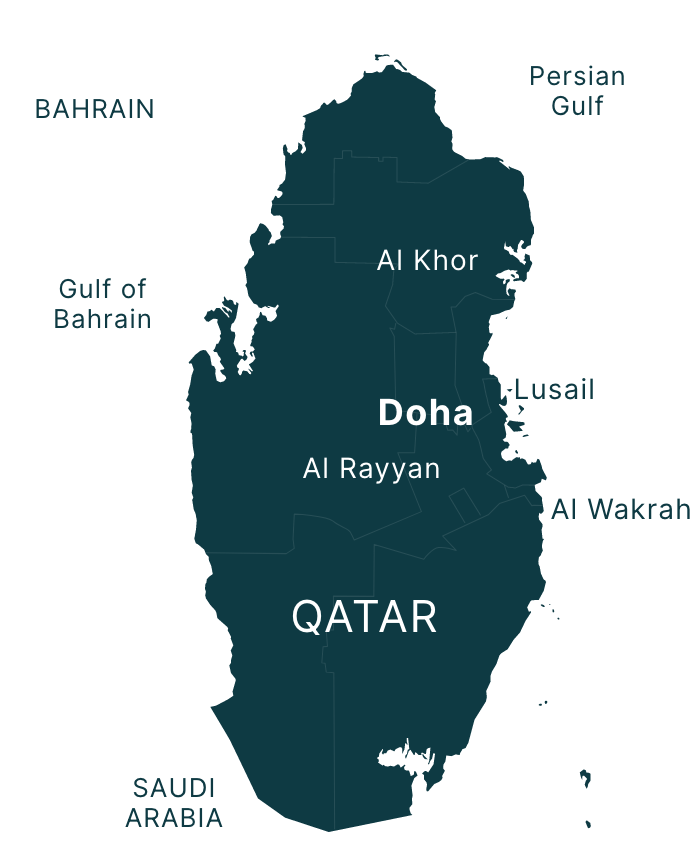
Al Khor: The northernmost host city, Al Khor is famous for its luxury resorts and nature areas. Al Khor was traditionally ruled by seven Bedouin families before integrating into the State of Qatar.
Lusail: Host to the FIFA World Cup Final, Lusail has transformed from a rural farming community to a state-of-the-art modern city in just 20 short years.
Doha: The political and economic hub of the nation, Doha boasts futuristic architecture and attracts a wide range of tourists and investors to its high-rise hotels and tastefully authentic Islamic culture.
Al Rayyan: Home to many members of the ruling family, Al Rayyan is the nation’s second largest city and boasts many attractions such as the national zoo and the renowned Aspire Park.
Al Wakrah: Al Wakrah is home to several beaches with stunningly tall dunes that rise from the Persian Gulf below. In addition to seven games, the city will be host to several music festivals during the FIFA World Cup.
Matches will take place in eight stadiums in five cities:
- Doha
- Al Khor
- Al Wakrah
- Al Rayyan
- Lusail
All stadiums are located within a 55-kilometre (35-mile) radius of Doha.
Qatari authorities introduced special fan IDs known as Hayya Cards for the 2022 FIFA World Cup.
Mandatory for every ticket holder, a Hayya Card serves as a form of identification required for entering the stadium, replaces visas and entry permits for foreign travellers and grants access to free transport on match days.
All travellers must apply for the Hayya Card to enter and exit the country between 1 November 2022 to 23 January 2023, regardless of whether they will attend a match or not or be present during the tournament. Travellers must remain in possession of their Hayya Card at all times until their departure.
Ticket holders in need of a Hayya Card may register on the website. The Hayya Card is digital and can be accessed by downloading the Hayya app on iOS or Android devices through their respective stores; physical copies can also be mailed upon request.
Travellers without a Hayya Card will be unable to enter/leave the country, enter the stadiums or access free transport on match days.
As a Hayya Card serves as a replacement for a visa or an entry permit, authorities may request to see it.
Travellers are advised to have all necessary documentation with them at all times and ready to produce for inspection at any police checks; passports are the primary form of identification.
Store copies of passports, the Hayya Card, credit cards and other important documents in a secure location in your accommodation in case of loss or theft.
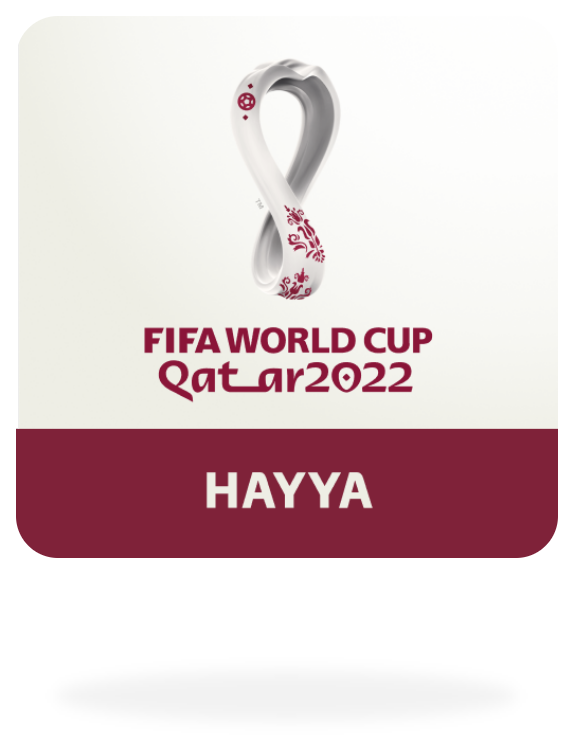
As the tournament is expected to draw as many as 1.5 million people to Qatar, travellers should expect increased stress on transport systems and above average congestion in host cities.
To accommodate the high volume of visitors, Hayya Card holders will have access to unlimited free rides on transport systems, with the exception of taxis, to and from the sporting venues. It is unclear if public transport is free on all match days or only on days in which a Hayya Card holder has a match ticket.
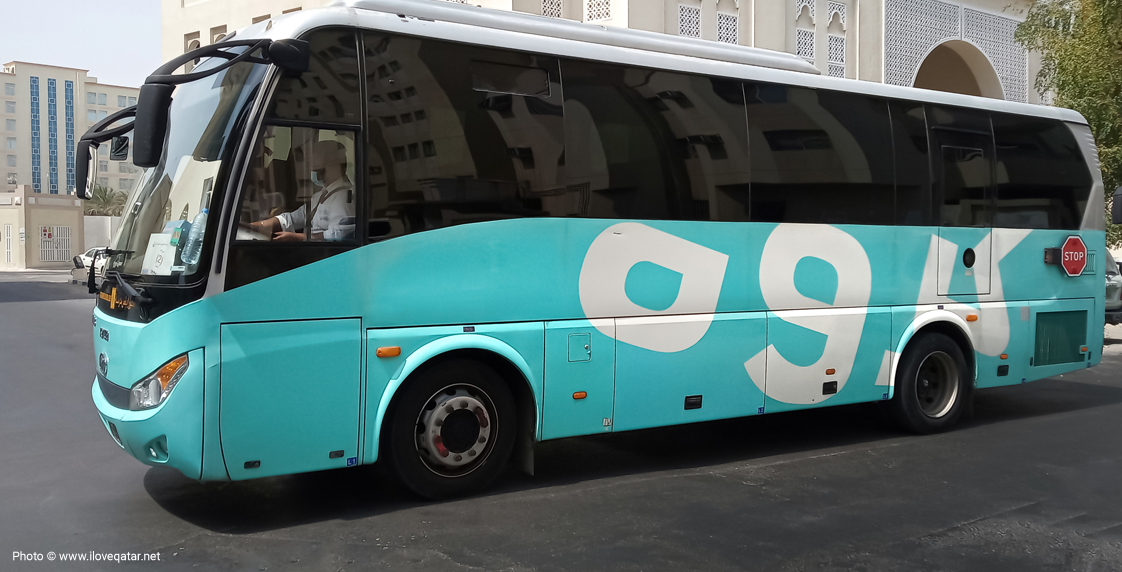
For those unable or unwilling to stay in Qatar during the tournament, Match Day Shuttle flights will be available in addition to regularly scheduled flights to and from multiple cities from around the Gulf including Dubai, Sharjah, Riyadh and Jeddah (60 per day), Muscat (48 per day) and Kuwait City (10 per day).
Ticket holders will arrive in Doha five to six hours before their scheduled match, gain priority immigration access and receive free transportation between the airport and stadium. Only carry-on luggage will be allowed on these flights.
Qatar Airways and Omar Air will operate Match Day Shuttle flights until 3 December, Air Arabia, Jazeera Airways and Kuwait Airlines until 18 December and Flydubai until 19 December. Thus far, Hayya Card holders will be eligible for multi-entry visas to Kuwait, Oman, Saudi Arabia and the UAE either for free or at a reduced rate.
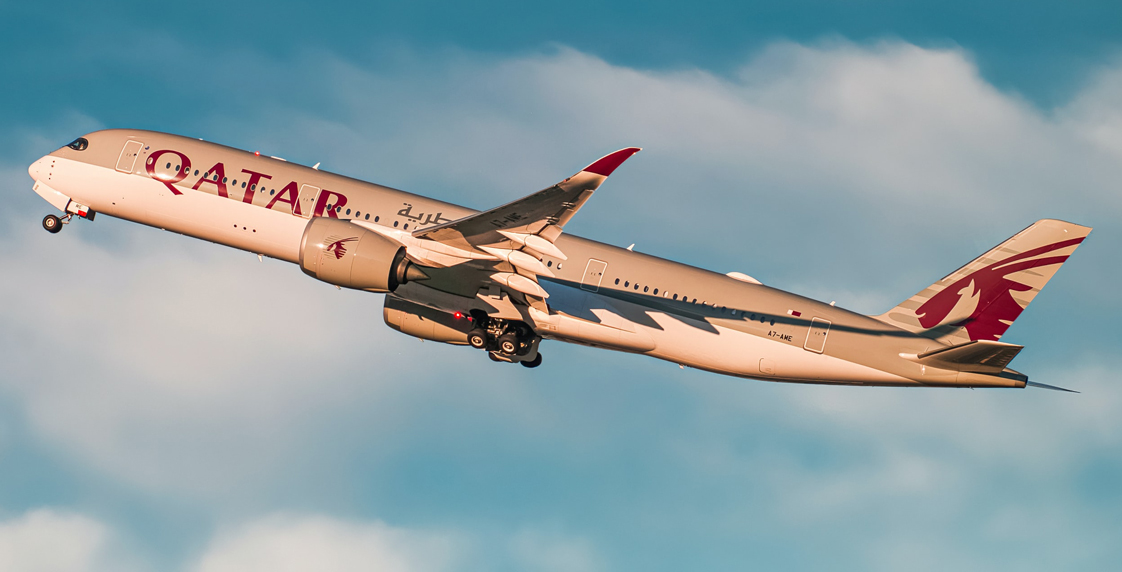
As the tournament is expected to draw as many as 1.5 million people to Qatar, travellers should expect increased stress on transport systems and above average congestion in host cities. To accommodate the high volume of visitors, Hayya Card holders will have access to unlimited free rides on transport systems, with the exception of taxis, to and from the sporting venues. It is unclear if public transport is free on all match days or only on days in which a Hayya Card holder has a match ticket.

For those unable or unwilling to stay in Qatar during the tournament, Match Day Shuttle flights will be available in addition to regularly scheduled flights to and from multiple cities from around the Gulf including Dubai, Sharjah, Riyadh and Jeddah (60 per day), Muscat (48 per day) and Kuwait City (10 per day).
Ticket holders will arrive in Doha five to six hours before their scheduled match, gain priority immigration access and receive free transportation between the airport and stadium. Only carry-on luggage will be allowed on these flights.
Qatar Airways and Omar Air will operate Match Day Shuttle flights until 3 December, Air Arabia, Jazeera Airways and Kuwait Airlines until 18 December and Flydubai until 19 December. Thus far, Hayya Card holders will be eligible for multi-entry visas to Oman, Saudi Arabia and the UAE either for free or at a reduced rate.

Security Issues
Travellers are unlikely to experience violent crime of any sort in Qatar.
While petty theft such as pickpocketing and bag snatching are a reality and home invasions, car theft and credit card fraud have risen alongside the rising cost of living and population of Doha, they all remain at low levels in comparison to most other countries.
Exercise general safety precautions and heightened security awareness at transport hubs, tourist hotspots, all crowded areas and on all forms of public transport.

Police forces maintain a strong presence across the country and are generally reliable, cooperative and courteous.
Owing to this high level of professionalism, visitors are unlikely to come across corrupt gestures, such as the solicitation of bribes from police.
In order to ensure adequate security for the tournament, thousands of personnel from foreign countries will be sent to Qatar to assist in day-to-day security.
Although English language skills of first responders may be lacking in the Qatari security forces, Qatari and foreign personnel are learning English to improve communication with visitors during the competition.
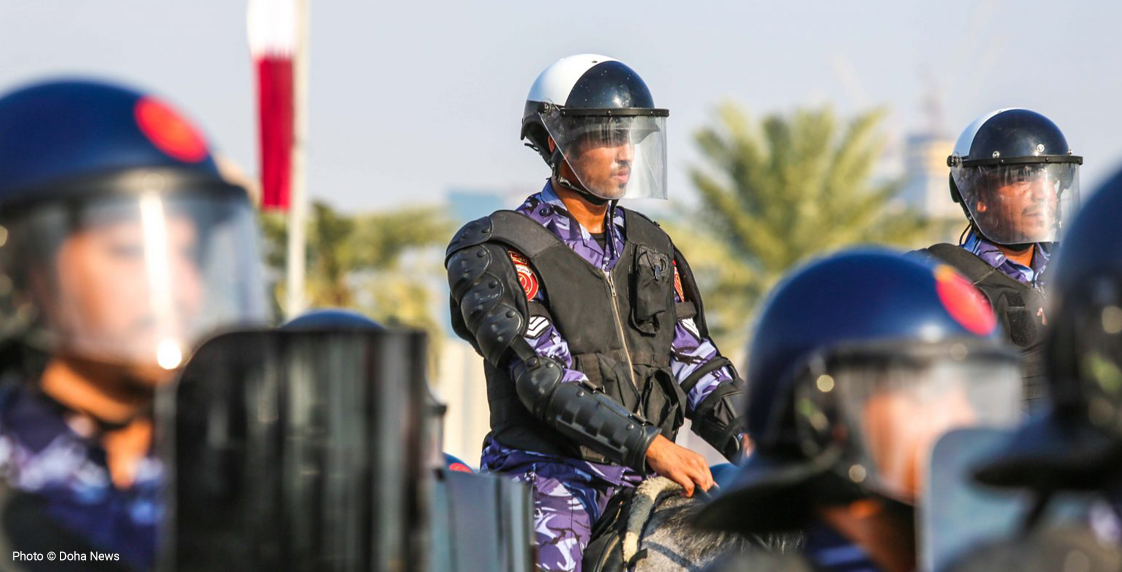
Identity theft and ATM and credit card fraud are on the rise in Doha.
Travellers should only use credit cards when an electronic transaction is possible and when the transaction can be completed directly in front of them. Never let a clerk, sales assistant or waiter take a card to another location for the transaction to be processed.
If this cannot be avoided, visitors should insist on going with the individual to the point of sale to witness the transaction; immediately void incorrect receipts.
When exchanging currency or drawing cash at ATMs, opt for banks with indoor space rather than those on the street.
Regularly check bank statements and ensure all important documents are secured or otherwise rendered illegible when disposed.

Unlike many of its Gulf neighbours, Qatar lacks an ongoing imminent threat of international terrorism.
However, exceptionally close relations with the US at a regional strategic level and Qatar’s dependence on foreign labour makes it vulnerable to attacks and infiltration by militants.
Authorities are expected to improve its security network through the use of CCTV cameras and facial recognition technology to monitor and disrupt potential attacks in the country during the tournament.
The most recent terrorist attack in Qatar occurred in March 2005, when a suicide bombing at a Doha theatre killed one United Kingdom (UK) national and injured several other people. The attack immediately followed calls by Al-Qaeda in the Arabian Peninsula (AQAP) of local citizens to target Western interests in Qatar.
Visitors are advised to monitor local and international media for communiqués issued by the AQAP and/or other militant groups that explicitly call for attacks in Qatar.

While incidents of hooliganism are rare in Qatar, World Cup venues will be heavily policed to avoid related incidents of violence, owing to the fact that football fans from all over the world will be attending them.
Authorities also plan to ban liquor inside stadiums as part of measures to prevent alcohol-fuelled crimes like hooliganism.
Where alcohol is served outside the venues before and after the matches, visitors are advised to refrain from getting too intoxicated and avoid garnering unwanted attention.
Exercise caution especially around large groups of fans and around major transport hubs.
Avoid unruly crowds as police will use heavy-handed measures and resort to arrests to break up any suspected incidents of hooliganism. Seek shelter at signs of unrest.

Travellers are unlikely to experience violent crime of any sort in Qatar.
While petty theft such as pickpocketing and bag snatching are a reality and home invasions, car theft and credit card fraud have risen alongside the rising cost of living and population of Doha, they all remain at low levels in comparison to most other countries.
Exercise general safety precautions and heightened security awareness at transport hubs, tourist hotspots, all crowded areas and on all forms of public transport.

Police forces maintain a strong presence across the country and are generally reliable, cooperative and courteous.
Owing to this high level of professionalism, visitors are unlikely to come across corrupt gestures, such as the solicitation of bribes from police.
In order to ensure adequate security for the tournament, thousands of personnel from foreign countries will be sent to Qatar to assist in day-to-day security.
Although English language skills of first responders may be lacking in the Qatari security forces, Qatari and foreign personnel are learning English to improve communication with visitors during the competition.

Identity theft and ATM and credit card fraud are on the rise in Doha.
Travellers should only use credit cards when an electronic transaction is possible and when the transaction can be completed directly in front of them. Never let a clerk, sales assistant or waiter take a card to another location for the transaction to be processed.
If this cannot be avoided, visitors should insist on going with the individual to the point of sale to witness the transaction; immediately void incorrect receipts.
When exchanging currency or drawing cash at ATMs, opt for banks with indoor space rather than those on the street.
Regularly check bank statements and ensure all important documents are secured or otherwise rendered illegible when disposed.

Unlike many of its Gulf neighbours, Qatar lacks an ongoing imminent threat of international terrorism.
However, exceptionally close relations with the US at a regional strategic level and Qatar’s dependence on foreign labour makes it vulnerable to attacks and infiltration by militants.
Authorities are expected to improve its security network through the use of CCTV cameras and facial recognition technology to monitor and disrupt potential attacks in the country during the tournament.
The most recent terrorist attack in Qatar occurred in March 2005, when a suicide bombing at a Doha theatre killed one United Kingdom (UK) national and injured several other people. The attack immediately followed calls by Al-Qaeda in the Arabian Peninsula (AQAP) of local citizens to target Western interests in Qatar.
Visitors are advised to monitor local and international media for communiqués issued by the AQAP and/or other militant groups that explicitly call for attacks in Qatar.

While incidents of hooliganism are rare in Qatar, World Cup venues will be heavily policed to avoid related incidents of violence, owing to the fact that football fans from all over the world will be attending them.
Authorities also plan to ban liquor inside stadiums as part of measures to prevent alcohol-fuelled crimes like hooliganism.
Where alcohol is served outside the venues before and after the matches, visitors are advised to refrain from getting too intoxicated and avoid garnering unwanted attention.
Exercise caution especially around large groups of fans and around major transport hubs.
Avoid unruly crowds as police will use heavy-handed measures and resort to arrests to break up any suspected incidents of hooliganism. Seek shelter at signs of unrest.

In the event of an emergency, or if you are the victim of a crime, immediately contact local authorities on site, or through one of the appropriate numbers below. It is also advisable to contact your home country consular office to inform them of the problem. Share your itinerary details with a trusted family member, friend or colleague who is not travelling prior to departure for Qatar.
Emergency Numbers
- General emergency: 999
- Police: 999
- Fire: 999
- Ambulance: 999
- Hazards: 911
Female travellers are advised to dress conservatively (covering arms, shoulders and legs) in public spaces; all travellers should avoid public displays of affection.
It is not necessary for women to cover their heads. Opt for loose clothing, including pants, and skirts which are well below the knees. Avoid wearing tops with low necklines or transparent materials.
Additionally, many Qatari men, like many Arabian Gulf nationals, do not shake hands with women unless the women extend their hands first; that being said, female travellers are advised to avoid shaking hands when in the company of older and more conservative Qatari men, as they are likely to display discomfort.
It is also illegal for unmarried men and women to live together or share a hotel room. This law is not enforced with regard to foreign, particularly non-Arab nationals, but hotels can escalate the matter to authorities if they choose to.
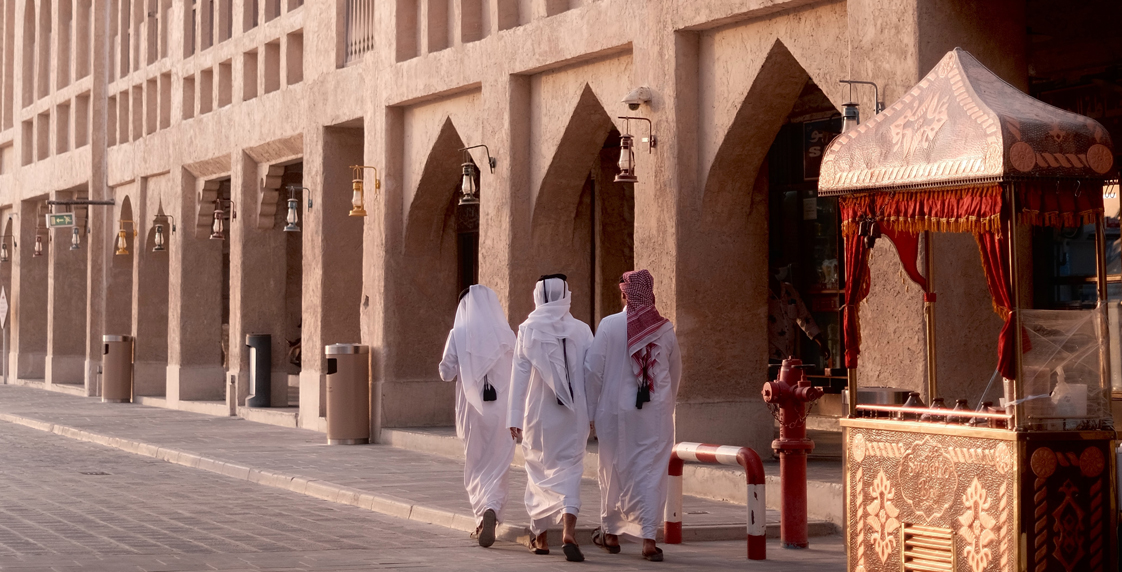
Although Qatar enjoys generally low crime rates, sexual harassment of women and girls is common and underreported.
While violent assault is unlikely, sexual harassment in the form of leering and unwanted remarks or advances is possible. It is best to ignore these advances and walk away. Avoid travelling alone, particularly after dark and in poorly lit areas.
Stick to main, well-lit streets and avoid walking through desolate areas, beaches or unfamiliar neighbourhoods after dark. Refrain from wearing headphones while walking in the evening. On public transport, opt for seating reserved for women. The Doha Metro is safe for travel during the day time for women. However, where possible, use pre-booked chauffeured private taxis that are provided by reputable hotels, especially for travel during the evenings.
Victims of sex crimes wishing to report incidents to the authorities are advised to seek legal and consular counsel beforehand as sexual intercourse outside marriage is a crime; rape reports are often treated as an admission of adultery during police investigations, resulting in detention for the survivor. Reports deemed to be uncredible can result in prosecution, fines, prison time and, in the case of Muslims only, corporal punishment.
In June 2021, a Mexican woman working for the World Cup organising committee reported a rape and was later tried and sentenced on “extramarital sex” charges in absentia to 100 lashes and seven years in prison. In 2016, a Dutch woman was the victim of a similar incident.
Those intending to report the issue should do so as soon as possible after their attack and avoid showering to help retain physical evidence. It must also be noted that law enforcement officials often confiscate the passports of survivors for the duration of the case; police and prosecutorial officials also lack trauma training. If you file a report, make sure to take note of your complaint number as consular officials will need it to provide assistance.
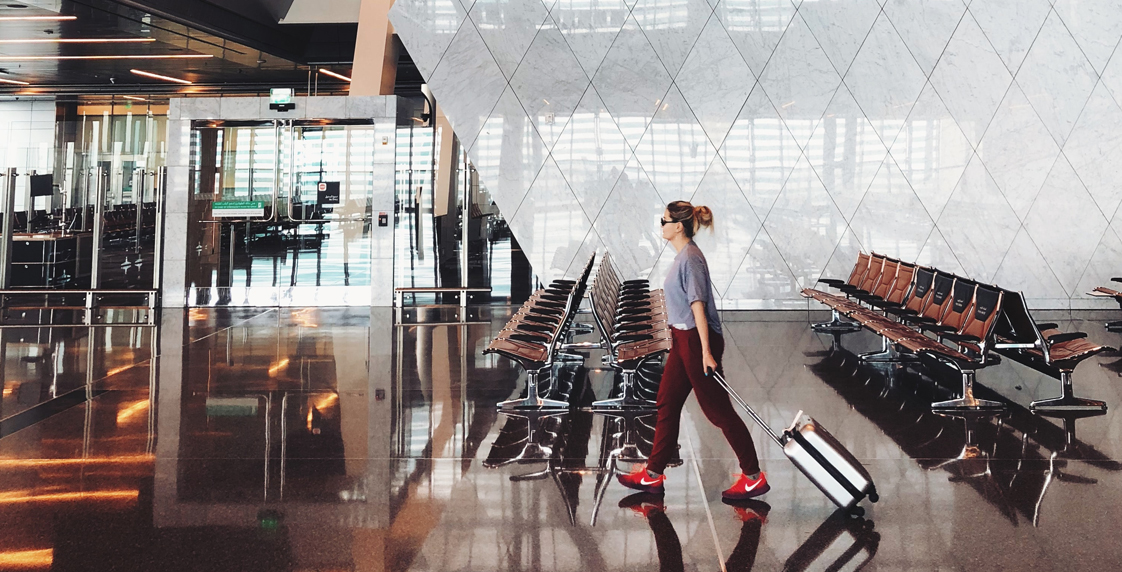
Regular contraceptives are available across the country and pharmacies do not usually require a prescription, however, emergency contraceptives are not available.
Women have limited access to some specialised gynaecological and reproductive health services, medicines and products in Qatar.
While menstrual pads are widely available, tampons are sold mostly at large supermarkets and pharmacies.
Abortion is illegal and women found to have undergone the procedure may be imprisoned for up to five years.
Female travellers are advised to bring oral emergency contraceptives and other feminine hygiene products, which may not be available locally.
Female travellers are advised to dress conservatively (covering arms, shoulders and legs) in public spaces; all travellers should avoid public displays of affection.
It is not necessary for women to cover their heads. Opt for loose clothing, including pants, and skirts which are well below the knees. Avoid wearing tops with low necklines or transparent materials.
Additionally, many Qatari men, like many Arabian Gulf nationals, do not shake hands with women unless the women extend their hands first; that being said, female travellers are advised to avoid shaking hands when in the company of older and more conservative Qatari men, as they are likely to display discomfort.
It is also illegal for unmarried men and women to live together or share a hotel room. This law is not enforced with regard to foreign, particularly non-Arab nationals, but hotels can escalate the matter to authorities if they choose to.

Although Qatar enjoys generally low crime rates, sexual harassment of women and girls is common and underreported.
While violent assault is unlikely, sexual harassment in the form of leering and unwanted remarks or advances is possible. It is best to ignore these advances and walk away. Avoid travelling alone, particularly after dark and in poorly lit areas.
Stick to main, well-lit streets and avoid walking through desolate areas, beaches or unfamiliar neighbourhoods after dark. Refrain from wearing headphones while walking in the evening. On public transport, opt for seating reserved for women. The Doha Metro is safe for travel during the day time for women. However, where possible, use pre-booked chauffeured private taxis that are provided by reputable hotels, especially for travel during the evenings.
Victims of sex crimes wishing to report incidents to the authorities are advised to seek legal and consular counsel beforehand as sexual intercourse outside marriage is a crime; rape reports are often treated as an admission of adultery during police investigations, resulting in detention for the survivor. Reports deemed to be uncredible can result in prosecution, fines, prison time and, in the case of Muslims only, corporal punishment.
In June 2021, a Mexican woman working for the World Cup organising committee reported a rape and was later tried and sentenced on “extramarital sex” charges in absentia to 100 lashes and seven years in prison. In 2016, a Dutch woman was the victim of a similar incident.
Those intending to report the issue should do so as soon as possible after their attack and avoid showering to help retain physical evidence. It must also be noted that law enforcement officials often confiscate the passports of survivors for the duration of the case; police and prosecutorial officials also lack trauma training. If you file a report, make sure to take note of your complaint number as consular officials will need it to provide assistance.

Regular contraceptives are available across the country and pharmacies do not usually require a prescription, however, emergency contraceptives are not available.
Women have limited access to some specialised gynaecological and reproductive health services, medicines and products in Qatar.
While menstrual pads are widely available, tampons are sold mostly at large supermarkets and pharmacies.
Abortion is illegal and women found to have undergone the procedure may be imprisoned for up to five years.
Female travellers are advised to bring oral emergency contraceptives and other feminine hygiene products, which may not be available locally.
Qatar is deeply conservative and, like many of its neighbours in the Gulf and Arab world, is openly hostile towards non-heterosexuals.
Homosexuality is a crime that may be punished with three years in prison, a fine or the death penalty. Qatari officials have publicly urged FIFA to withdraw its reassurance to the live audience that LGBT+ symbols can be displayed, further indicating that LGBT+ travellers may suffer harassment or abuse.
Queer travellers should also reconsider the use of dating applications as officials have a history of using these apps for entrapment. Male survivors of sexual assault also run the risk of being charged and detained for homosexuality at least during the investigation.
Queer travellers seeking to avoid conflict with the authorities are advised to avoid discussion of LGBT+ rights with locals, engaging in public display of affection with a same-sex partner and displaying the rainbow flag or other famous symbols of sexual diversity.
LGBT+ travellers may suffer harassment or abuse
Staying Safe
Criticism, dissent, and freedom of assembly are regulated liberties in Qatar, and anti-government demonstrations are not tolerated by the regime. High levels of personal wealth help to moderate domestic dissatisfaction with unpopular policy.
Despite this, criticism of various policies by foreign nationals means there is a real possibility of unplanned and disruptive protests during the tournament, particularly over working conditions of Southeast Asian labourers in the country.
Visitors are advised to avoid all protest gatherings as authorities will likely use heavy handed force and resort to arbitrary arrests to prevent or disperse unsanctioned demonstrations.
Foreign nationals suspected of involvement or reporting on demonstrations in the past have been subject to harsh detentions, imprisonment and penalties in Qatar.
Visitors are advised to avoid all protest gatherings
Qatar imposes strict restrictions on alcohol sales and consumption; only a few hotels and establishments are authorised to serve.
Drinking in public spaces is illegal. Muslims foreign travellers may be denied service by locals.
Currently, alcohol consumption inside stadiums will only be possible for attendees who purchase hospitality packages to watch the games.
Due to these restrictions, authorities maintain high taxes on alcohol purchases, making a pint of beer cost up to USD24.
Officials have stated that alcohol will not be allowed inside football stadiums nor outside the stadiums for limited periods of time before and after games as was previously stated.
However, FIFA representatives have stated that alcohol will be available in additional designated areas around Qatar during the tournament, including at the Fan Festival from 6:30pm to 1am daily.
Travellers found drinking in public or in a state of intoxication in public can be sentenced to up to six months in prison and be fined USD820.
Although state officials often proclaim respect for and interest in protecting religious and cultural minorities, non-Sunni Muslim proselytisation is illegal and may be punished by up to seven years in prison.
Travellers should avoid making jokes about religions, particularly Islam, and critising the Qatari royal family to avoid antagonising locals, who may resort to legal action. Similarly, discussion of ties with Saudi Arabia and the United Arab Emirate (UAE) or working conditions for Southeast Asian labourers, including those who worked on stadium infrastructure, is ill-advised.
Travellers should expect at least limited surveillance of telephone and electronic communications.
Avoid showing the soles of your feet, even accidentally or when crossing your legs. Do not photograph people without their permission. Avoid using your left hand to pass food, gesture with, or greet people as that is considered inappropriate in Arab and Muslim culture.
Qatar imposes strict restrictions on alcohol sales and consumption; only a few hotels and establishments are authorised to serve.
Drinking in public spaces is illegal. Muslims foreign travellers may be denied service by locals.
Currently, alcohol consumption inside stadiums will only be possible for attendees who purchase hospitality packages to watch the games.
Due to these restrictions, authorities maintain high taxes on alcohol purchases, making a pint of beer cost up to USD24. Officials have stated that alcohol will not be allowed inside football stadiums nor outside the stadiums for limited periods of time before and after games as was previously stated.
However, FIFA representatives have stated that alcohol will be available in additional designated areas around Qatar during the tournament. Travellers found drinking in public or in a state of intoxication in public can be sentenced to up to six months in prison and be fined USD820.
Although state officials often proclaim respect for and interest in protecting religious and cultural minorities, non-Sunni Muslim proselytisation is illegal and may be punished by up to seven years in prison.
Travellers should avoid making jokes about religions, particularly Islam, and critising the Qatari royal family to avoid antagonising locals, who may resort to legal action. Similarly, discussion of ties with Saudi Arabia and the United Arab Emirate (UAE) or working conditions for Southeast Asian labourers, including those who worked on stadium infrastructure, is ill-advised.
Travellers should expect at least limited surveillance of telephone and electronic communications.
Avoid showing the soles of your feet, even accidentally or when crossing your legs. Do not photograph people without their permission. Avoid using your left hand to pass food, gesture with, or greet people as that is considered inappropriate in Arab and Muslim culture.
Effective 1 November all visitors are longer required to present a negative PCR test upon entry nor are citizens or residents required to test upon entry.
During the tournament, visitors will also not be required to be fully vaccinated against COVID-19.
Cases of Middle East Respiratory Syndrome (MERS) have been recorded in Qatar.
Symptoms include breathing difficulties, coughing and fever and – in severe cases – pneumonia or kidney failure. There is no treatment for MERS, beyond supportive hospital care and bed rest.
As a general precaution, travellers should avoid contact with camels or visiting farms and markets. Raw camel milk, undercooked camel meat and camel products should also be avoided.
Qatari air quality is classified as unhealthy for sensitive groups such as the elderly, children and those with respiratory or cardiovascular diseases.
Individuals from these groups are advised to avoid all forms of strenuous outdoor activities and to wear face masks.
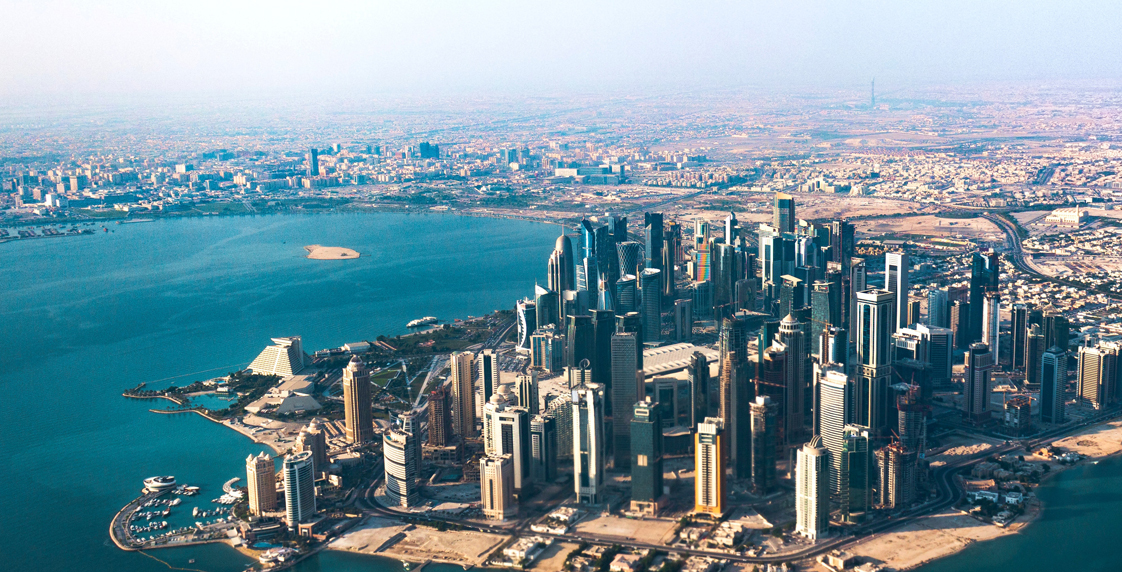
Effective 1 November all visitors are longer required to present a negative PCR test upon entry nor are citizens or residents required to test upon entry.
During the tournament, visitors also will not be required to be fully vaccinated against COVID-19.
Cases of Middle East Respiratory Syndrome (MERS) have been recorded in Qatar.
Symptoms include breathing difficulties, coughing and fever and – in severe cases – pneumonia or kidney failure. There is no treatment for MERS, beyond supportive hospital care and bed rest.
As a general precaution, travellers should avoid contact with camels or visiting farms and markets. Raw camel milk, undercooked camel meat and camel products should also be avoided.
Qatar air quality is classified as unhealthy for sensitive groups such as the elderly, children and those with respiratory or cardiovascular diseases.
Individuals from these groups are advised to avoid all forms of strenuous outdoor activities and to wear face masks.

By Diego Maloney, with contributions from Patricia Baruffi, Nikita Billier, Ramya Dilipkumar and Marco Lara
